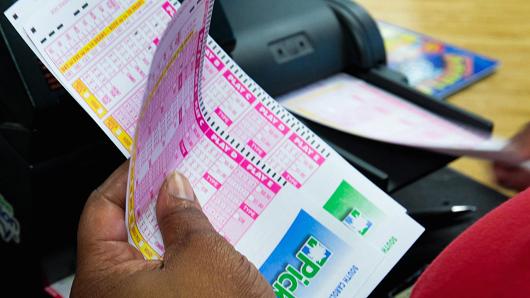
Thousands of lottery players in South Carolina thought Christmas was their lucky day.
Starting at 5:51 p.m. last Dec. 25, gas stations and convenience stores across the state dispensed a steady stream of what appeared to be winning tickets.
Some customers caught on to the anomaly and bought as many as they could. Nicole Coggins, 36, of Liberty, S.C., was one of them.
More from the New York Times:
Glitch in South Carolina lottery could mean $19.6 million in winnings
How much is your privacy worth? A lot, if you’ve won $560 million
The man who cracked the lottery
“We figured we’d buy a reliable vehicle and take the kids to Disneyland,” she said, adding that she and a few other family members kept playing the game until they amassed what they thought were thousands of dollars in winnings.
But Ms. Coggins was not able to cash in. The state suspended the game after two hours, at 7:53 p.m., and in a statement two days later, the South Carolina Education Lottery said its computer system vendor, Intralot, had experienced a programming error.
The would-be winners held on to their tickets for months. But on Wednesday, the lottery said in a statement that the error had indeed stemmed from the vendor’s coding error, and that ticket holders could send in their slips — not to receive any winnings, but rather for a reimbursement of the ticket price.
It added that according to state law, “prizes arising from a ticket produced or issued in error must not be paid.”
“Regrettably, these errors by the former vendor led loyal players to mistakenly believe that they held winning tickets,” the statement said. “While SCEL is mindful of the magnitude of this decision on its players, any other decision would not comply with the law.”
Ms. Coggins was not pleased. “It’s not fair,” she said. “It’s not right.” She noted that some people who bought winning tickets were able to cash them in immediately and keep the money.
Tim Madden, a lawyer representing the state lottery, said that the erroneous winnings would have totaled around $35 million, and that ticket holders who cashed in immediately were able to collect about $1.7 million because of the error.
“Those players who got the winnings got an extraordinary windfall to which they were not entitled,” he said. “They just happened to be at the right place at the right time.”
The game was a seasonal offering called Holiday Cash Add-a-Play. The tickets could not be bought alone; they could be added only after players purchased a ticket from another game, like the Pick 4 or the Palmetto Cash 5.
Holiday Cash Add-a-Play worked like tick-tack-toe. Players saw a grid with nine boxes, each containing a Christmas- or winter-related image. Each grid cost $1. Three Christmas trees in a row — horizontally, vertically or diagonally — meant a cash prize: up to $500 for each grid.
For those two hours on Christmas Day, many players were surprised to find all of their grids filled entirely with star-topped evergreens.
The state lottery said that Intralot failed to conduct adequate quality-assurance testing that would have prevented the error. “Intralot was required to do certain things, and because they failed to do those things, the lottery will be asking for that money back,” Mr. Madden said. Intralot did not immediately respond to an email seeking comment.
The state lottery has since changed vendors. Mr. Madden said the new vendor, International Game Technology, had already been chosen before Christmas because Intralot’s contract was ending.
Two lawsuits, in Richland and Sumter Counties, have already been filed against the state lottery and Intralot on behalf of people who bought tickets.
Tom Ervin, a lawyer representing Ms. Coggins, one of the plaintiffs, said that players should not mail in their tickets for a refund just yet because of the lawsuits.
“We look forward to trying to bring justice for these thousands of lottery ticket holders who paid their money for a ticket,” he said. “We think it’s a breach of contract if the commission decided to deny them their rightful winnings.”
Lottery proceeds help pay for educational programs and scholarships in South Carolina, and the State Legislature has appropriated more than $5 billion since the lottery began in 2002.
[“Source-cnbc”]
